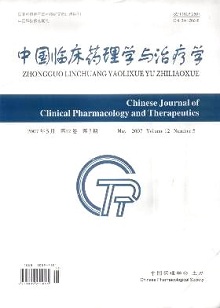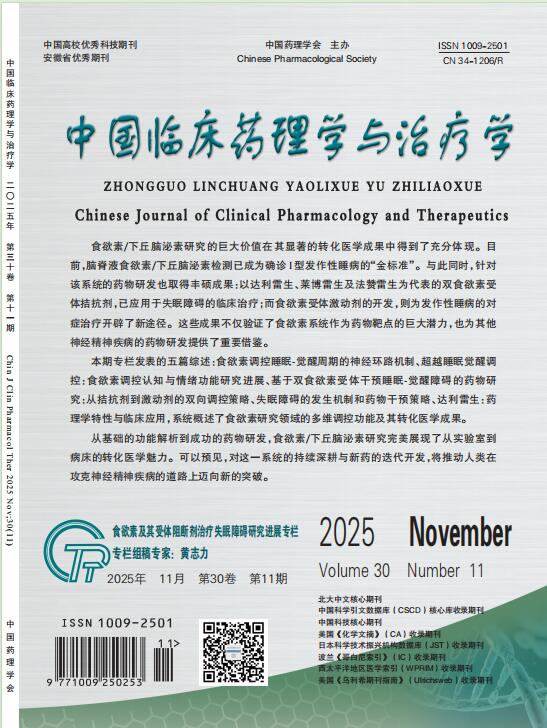Therapeutic effects of benthiacthiactzine against circulatory failure induced by organophosphate insecticides and hemorrhagic shock in rats
LIU Nian, CAO Jie-wei, WANG Ru-huan, LONG Chao-liang, WANG Hai
2007, 12(5):
575-581.
 Asbtract
(
135 )
Asbtract
(
135 )
 PDF (492KB)
(
290
)
References |
Related Articles |
Metrics
PDF (492KB)
(
290
)
References |
Related Articles |
Metrics
AIM: To investigate the therapeutic effects of benthiactzine against circulatory failure induced by organophosphate insecticides DDV and hemorrhagic shock in rats. METHODS: 42 healthy Wistar male rats, weighing 320 ±20 g, were divided into six groups randomly :DDV poisoning rats treated with benthiactzine 0.5, 1. 0 or 2.0 mg/kg, and hemorrhagic shock rats treated with saline or benthiactzine 0.5, 2.5 mg/kg (n= 7). Rats were treated with organophosphate insecticides (i.p. ) to induce circulatory failure shock in which the mean blood pressure (MBP) dropped to 45 mm Hg as an index, then treated with benthiactzine (i.m). The others were exsanguinated untill MBP decreased to 35 -40 mm Hg within 15 min, and models of hemorrhagic shock were established by maintaining MBP at that level for 30 -60min, then those rats were treated with saline or benthiactzine (i.m). RESULTS: In circulatory failure rats inducedby DDV, SBP, DBP, MBP, HR, LVDP, IP, + dp/dtmax , -dp/d tmax, Vpm and +dp/d tmax IP dramatically decreased (P <0.01) compared with pre-poisoning,and some kinds of arrhythmia were observed. Benthiactzine affected each parameter in 30 s to 3 min. CONCLUSION: Treated with benthiactzine, DDV poisoning rats can get away from circulatory failure in a short time. Benthiactzine can be a favourable medicine against circulatory failure induced by organophosphate insecticides to save time for other clinic treatments.


